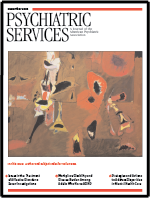The Mystery of Breathing
Perri Klass is a well-known pediatrician-author. In The Mystery of Breathing she has written a novel that is more than just a mystery. True, there is a mystery at the heart of the story: Dr. Maggie Claymore, neonatologist extraordinaire, is being vilified at the very hospital where she regularly works miracles, saving impossibly small babies who would not stand a chance of survival in anyone else's hands. And it appears to be an inside job. Who would besmirch the reputation of such a paragon as Maggie?
Maggie herself is not so mysterious. Klass tells the story in pieces, weaving together the different but related threads of Maggie's development from a very deprived childhood to her current status as a fiercely devoted neonatologist, her relationships with colleagues and with her husband (an urban doctor who is more inclined to the practical than she is), and her struggles not only with conception but with the conflicts over whether to become a mother.
This book intends to be psychologically astute, and as such it will be of interest for psychiatrists and other mental health professionals. Without spoiling the book for the reader, and therefore without revealing its few surprises, I will say that Klass makes some rather pedestrian connections between her heroine's childhood deprivations and her current adaptation to her role. Maggie Claymore is certainly resilient, but at the cost of some of her authenticity. The only time the reader can be sure that Maggie is living her true self is when she's saving babies, so the smear campaign against her is certainly devastating, aimed right at her heart. Maggie doggedly fights for her good name, which the reader never doubts is entirely deserved. In other aspects of her life, as wife, friend, mentor, and colleague, and even in her dealings with the babies' parents, the good doctor seems internally deficient, going through the motions that to her prove a point about her competence but do not express her essential self.
As a doctor, Klass tackles the often unspoken topic of the relationship between usually female nurses and female doctors. This is a bold move, and one of the more satisfying portrayals in the book. And as a female doctor, Klass does not shrink from another central issue, not just for Maggie Claymore, but for all the Maggie Claymores of the world: What about the children? This theme underlies all Maggie's actions, permeates hospital politics, affected her career choice, and is never out of her mind. Its resolution remains for the reader to discover.
Readers who work in hospitals—as opposed to relatively private offices—will enjoy the mild frisson of fear that a good mystery brings when contemplating the fact that the hospitals they love can become hostile and threatening. (The exposition of the mystery is revealed slowly enough that its final revelation is no surprise at all.) And The Mystery of Breathing, although "about" a woman doctor, is not just "chick lit." Certainly doctors of all specialties and genders will recognize some of their own issues in Maggie Claymore.
Dr. Tabor is medical director of the adult inpatient service at Kings County Hospital Center in Brooklyn, New York, and assistant professor of psychiatry at the State University of New York Downstate Medical Center.



